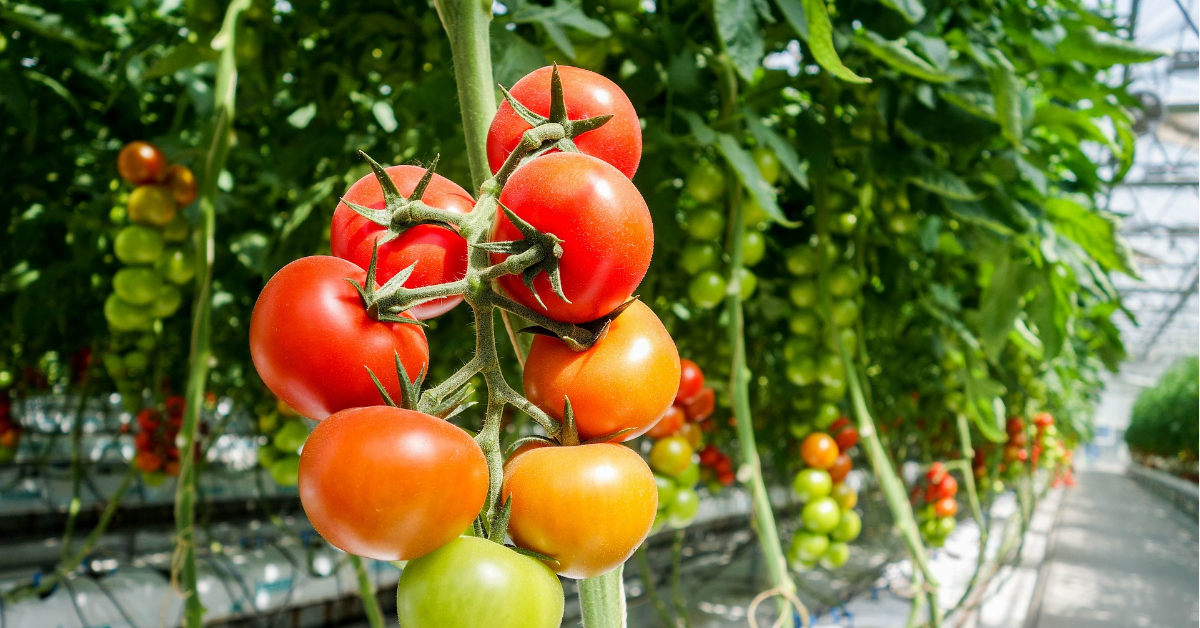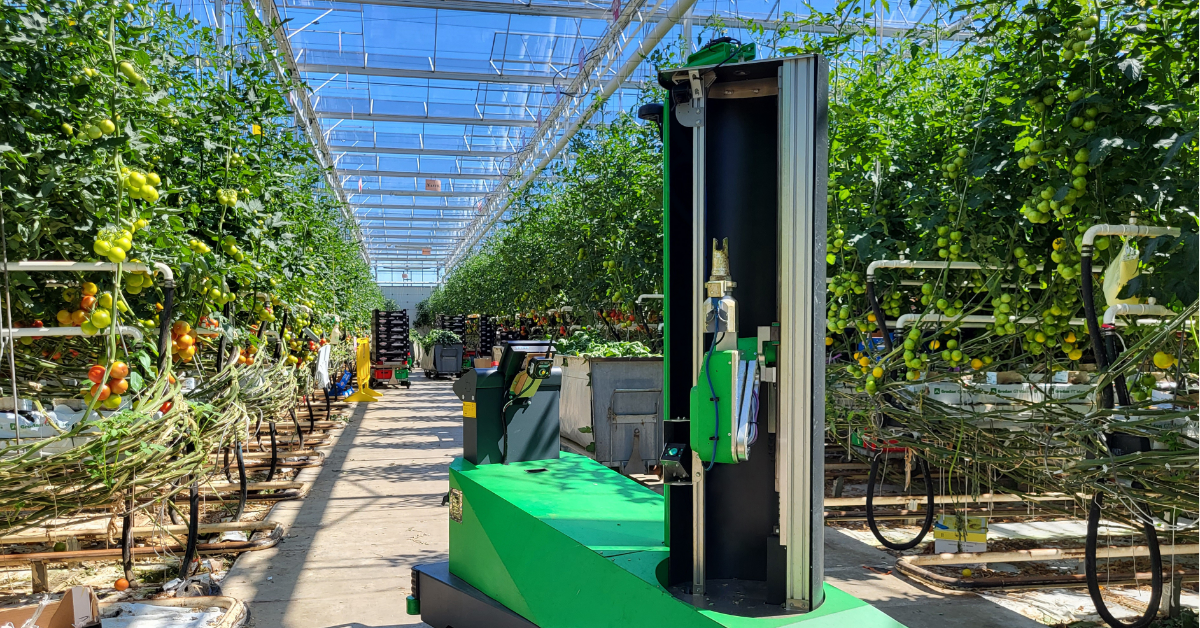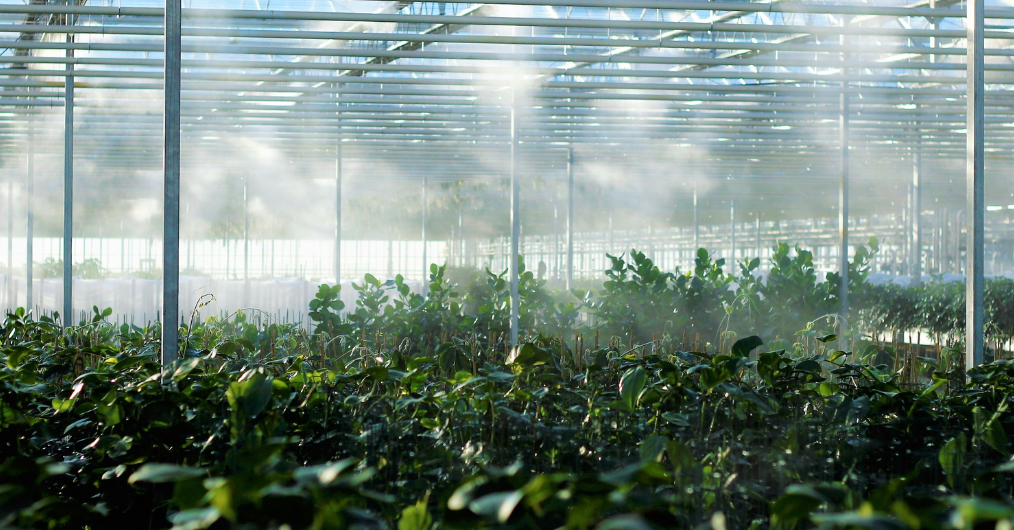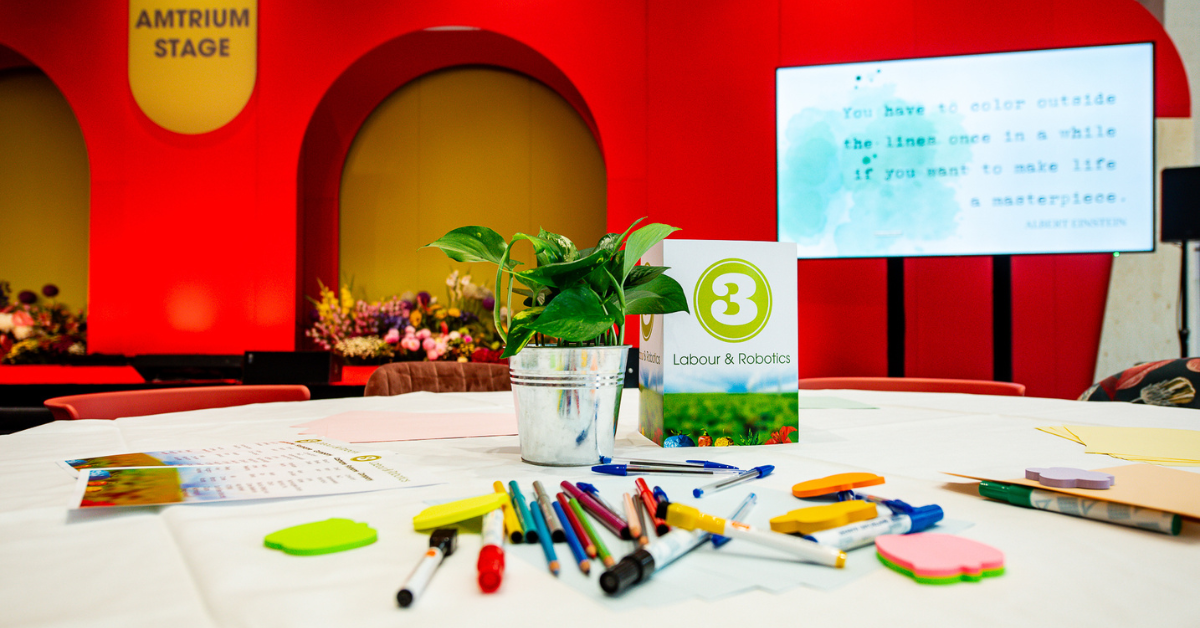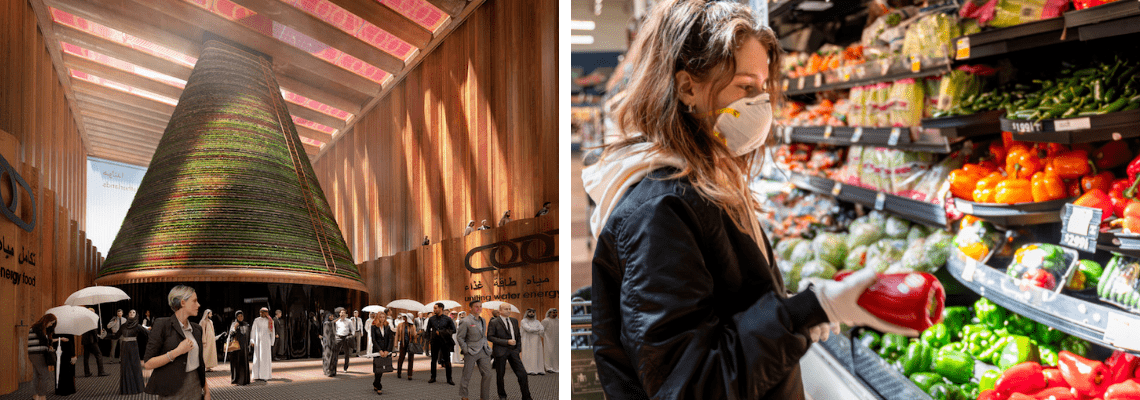With a growing world population, the need for food will also increase. To achieve this, we face major challenges worldwide, such as food safety, waste, and sustainability. Dutch parties are therefore taking the lead in coming up with solutions for this, realizing that this will not work individually. “The importance of collaboration is enormous.”
The world is changing fast. Not only the population is increasing rapidly, but climate change is also having a major impact on our daily lives. As a result, more food will be needed in the future, which will also have to be produced under more difficult conditions. A new global food system is therefore essential, concludes the Food and Agriculture Organization of the United Nations.
“The growing world population, the enormous size of food waste, the differences per continent when it comes to food supplies, the increasingly strict requirements in the field of food safety and food quality, and the increasing requirements in relation to climate change and water use. Those are the main challenges we face together. The Netherlands has conformed to the Sustainable Development Goals and these are being addressed in the Top Sector policy.”
Top Sector policy
“The United Nations have formulated the Sustainable Development Goals (SDG)”, says Jaap Bond, ambassador of the Top Sector Horticulture & Propagation Materials in the Netherlands. The Top Sector Horticulture & Propagation Materials is one of the nine Top Sectors in which the business community and knowledge institutions work together on the international competitive position of the Netherlands. Contributing to food security in the world is also one of the topics. “The growing world population, the enormous size of food waste, the differences per continent when it comes to food supplies, the increasingly strict requirements in the field of food safety and food quality, and the increasing requirements in relation to climate change and water use. Those are the main challenges we face together. The Netherlands has conformed to the Sustainable Development Goals and these are being addressed in the Top Sector policy.”
According to Annette Wijering, managing director of international trade at the Netherlands Enterprise Agency, these goals have been elaborated into more concrete sub-goals. “The basis for us is that you have to approach the food system in an integrated manner. You have to look at what is needed in the total food chain to be able to strengthen the whole. Given the challenge of the global food issue, you can no longer get there with individual steps in a chain. Just setting up a greenhouse or only focusing on increasing the production of a crop is not enough. Because a system is only as strong as its weakest link. We, therefore, advocate an integrated approach to tackling the challenges and that is why we emphasize the great importance of collaboration.”
Cross-sectoral cooperation
Jaap Bond agrees. “We have to join forces and we have to seek cooperation because we need each other to meet those challenges. The Dutch horticultural sector and the companies involved in starting materials are able to solve a number of global problems.” And that, he says, also applies to other countries that support the ambitions of the UN. “In the Netherlands, for example, we work structurally with countries such as Vietnam and Mexico, and many horticultural companies, such as seed breeding companies, are active worldwide. By working closely together we can really take steps.” Not only within specific chains but also by working together cross-sectoral, says Bond. “We therefore also work closely with other Top Sectors in search of interesting crossovers that can ultimately take us further.”
The Top Sector policy is the structural innovation programme in the Netherlands. It works on the principle of Public-Private Partnership, which means that the government's money is at least doubled. “This policy has enabled hundreds of innovative projects to get off the ground in recent years,” says Bond. Looking at the specific actions that are being taken up by the Top Sector, Bond points out the collaboration with the Ministry of Health. “Good and healthy food has a huge impact on people's health. If you eat well, you will get sick less quickly and you will recover faster. Obesity and diabetes are rapidly growing problems, so you need to pay attention to them. Furthermore, through breeding, you can develop new varieties that, for example, use less water or that are resistant to diseases and viruses, so that you need less crop protection products.”
Public-private partnerships
Annette Wijering also sees that the pursuit of a new food system is receiving increasing support worldwide. “You also see more and more international and national collaborations being established. Just as the Netherlands Enterprise Agency and the Top Sectors are committed to this, various international organizations are actively gearing their programs to this, for example, the World Bank. But knowledge institutions from all over the world are also increasingly finding each other.” Wijering indicates that there are various joint multi-year public-private partnerships in the Netherlands on this theme and that the Netherlands is focusing on collective propositions in various regions of the world. “Good examples are the triple helix approach in the Gulf region, where we focus on the water, food, and energy nexus and where we layout propositions based on that connection. But we also have examples of knowledge and innovation centers being developed in Jordan, Centers of Excellence in South Africa and India, and international projects in Germany and China. In all those cases, we try to put down an integrated proposition and show you what you need in a comprehensive way to realize a good horticultural chain.”
Wijering indicates, however, that there is still a lot to gain when it comes to cooperation within the horticultural sector. “It is important that we make that move quickly. For example, if you install mid-tech or low-tech greenhouses and the customer cannot do anything with them after you leave, this will have a negative boomerang effect and you will also sell fewer greenhouses in the long run. So, it is also about thinking along with your customers about increasing production in the greenhouse, about training courses for running a greenhouse and handling equipment, but also about the cold chain and logistics when the product leaves the greenhouse and about a fair distribution of the yields. These are issues that you have to shape together.” Also, cross-sectoral, according to Wijering. “You cannot solve complex challenges in a simple manner. For instance, agricultural and horticultural problems can only be successfully solved if you take into consideration agriculture, water, and energy aspects and there might be others. This means that the water, energy, and agricultural or horticultural sectors need to cooperate. This nexus approach is also reflected in the Dutch contribution to the World Expo in Dubai and The Netherlands is working on a cross-sectoral approach for the Mekong Delta in Vietnam.”
Knowledge and expertise
The Netherlands Enterprise Agency sees social challenges such as food systems changes as an important challenge for everyone worldwide and wants to generate solutions for this together. “As a public organization, we obviously have a core task to contribute to this. More concretely, this means that we also want to actively support sustainable and innovative companies with their global propositions. But we also think that we can contribute a lot as the Netherlands, specifically to the food challenge that lies ahead of us. We are the second largest exporter of horticultural products in the world and have an excellent starting position with many innovative companies and knowledge institutions that are at the forefront of finding solutions to these kinds of challenges. So, we can contribute strongly and see a big win-win. Both in terms of impact on food security and in terms of earning capacity for Dutch companies. That is why we are so strongly committed to this with our knowledge and expertise, our worldwide network, the collective multi-year processes with companies, and in our individual services.”
According to Jaap Bond, it is also important to keep talking about it outwardly. “It is typically Dutch not to boast too much about it. Nevertheless, it is important to speak out and to be accountable. We recently did this in an evaluation that was sent to the Dutch parliament. This evaluation shows that the Top Sector policy is working and has yielded good results.” The Netherlands Enterprise Agency is also doing a lot to get the message across. “We try to make the importance of these themes clear through our Netherlands Branding and events and trade fairs such as GreenTech. We also emphasize what companies could do and we show best practices. I also think our pavilion and program at the World Expo in Dubai are a good example. The building is actually an integral proposition in itself in which you radiate sustainability. But most programs, missions, and events in the Gulf are also built around the nexus theme: uniting water, energy, food.”
Bond and Wijering, therefore, hope that many more parties will join in. “We have various entrances for companies that want to use this. Companies can participate in our ongoing multi-year market theme approach and can submit proposals as a cluster. As individual companies, it is useful to take a good look at our events and mission calendar, where you can register for activities related to this theme to various countries," says Wijering.
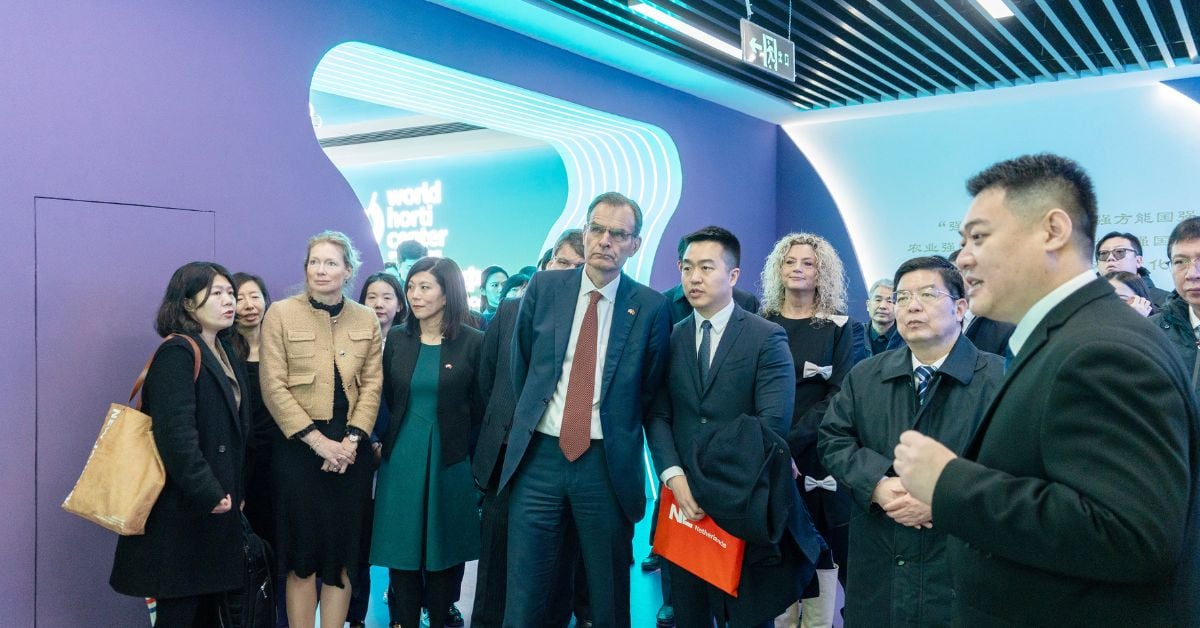
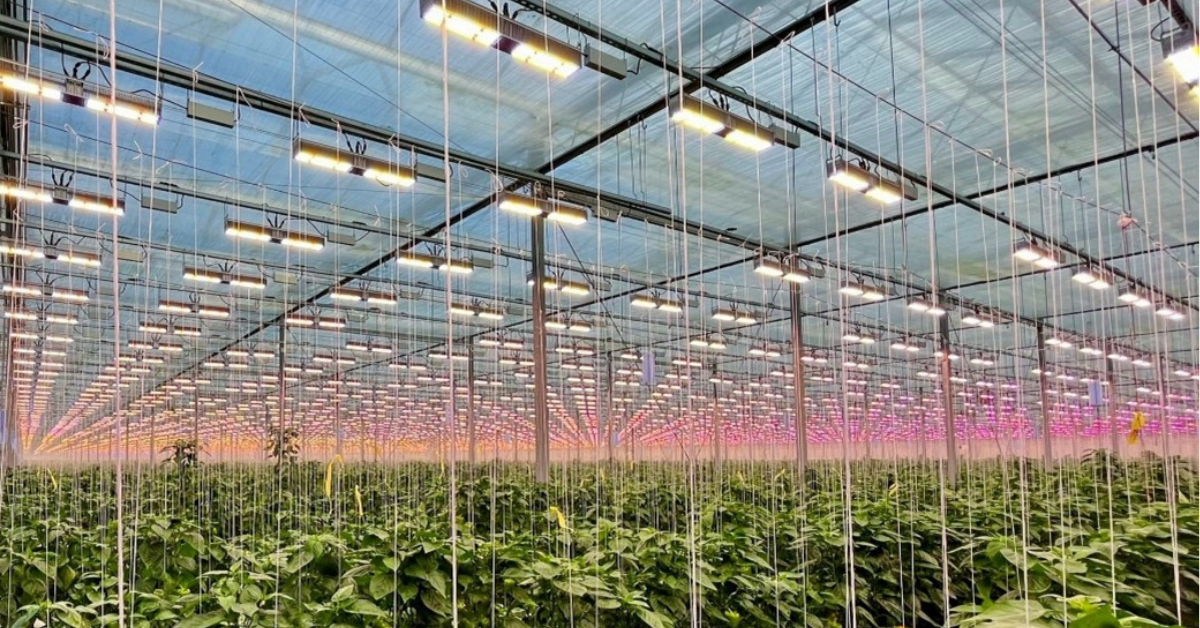
.png?h=628&iar=0&w=1200)

